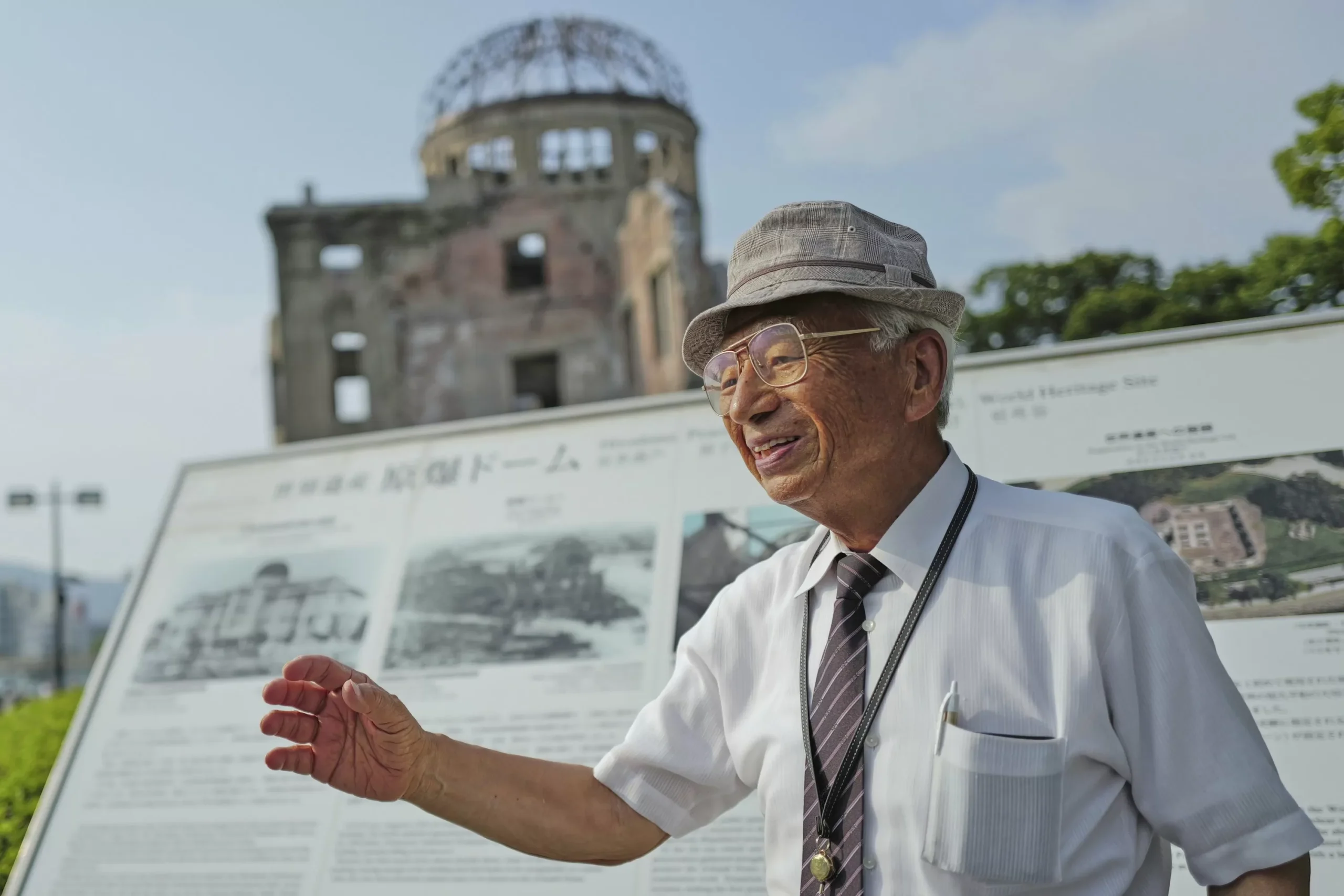Eighty years ago, the world witnessed one of the most horrific events in human history – the atomic bombings of Hiroshima and Nagasaki. The impact of these bombings was devastating, not only in terms of loss of lives and destruction of property, but also in terms of the long-lasting effects on the survivors and their future generations. And yet, after all these years, we find ourselves once again facing the threat of nuclear weapons.
For the remaining survivors of the atomic bombings, known as hibakusha, this is a painful reminder of the horrors they experienced. Many of them are now in their 80s and 90s, and they have dedicated their lives to spreading the message of peace and the dangers of nuclear weapons. However, as the global political climate shifts and tensions rise, their voices seem to be drowned out.
In recent years, we have seen a resurgence of nuclear threats, with countries like North Korea and the United States engaging in a dangerous game of nuclear brinkmanship. The hibakusha, who have lived through the unimaginable consequences of nuclear weapons, are now speaking out against these threats. They are using their firsthand experiences to warn the world about the catastrophic consequences of nuclear war.
One such survivor is 85-year-old Setsuko Thurlow, who was a 13-year-old schoolgirl when the bomb was dropped on Hiroshima. She vividly remembers the blinding light, the deafening blast, and the intense heat that engulfed the city. She lost her sister, her parents, and her home in the bombing. Thurlow has been a vocal advocate for nuclear disarmament, and her powerful speeches have moved audiences around the world.
In an interview with BBC, Thurlow expressed her frustration over the current state of affairs. She said, “I thought I had done my job by speaking out about my own experience and the horrors of nuclear weapons. But now, I find myself having to do it all over again, 80 years later. It’s disheartening to see that the world has not learned from the past.”
Thurlow is not alone in her sentiments. Many of the hibakusha are feeling a sense of deja vu as they see the world once again on the brink of a nuclear catastrophe. They have spent their entire lives trying to prevent another tragedy like the one they experienced, and yet their pleas seem to be falling on deaf ears.
The hibakusha have been at the forefront of the global movement for nuclear disarmament. Their tireless efforts have led to the signing of the Nuclear Non-Proliferation Treaty in 1968, which aims to prevent the spread of nuclear weapons and promote disarmament. However, despite this treaty, the world’s nuclear arsenal continues to grow, and the threat of nuclear war looms large.
The hibakusha are now urging the world’s leaders to take concrete actions towards nuclear disarmament. They are calling for the complete elimination of nuclear weapons and for countries to engage in meaningful dialogue to reduce tensions. They believe that the only way to prevent another tragedy like Hiroshima and Nagasaki is through cooperation and diplomacy, not through threats and aggression.
The hibakusha are also concerned about the impact of nuclear weapons on the environment and future generations. The radiation from the atomic bombings has caused long-term health effects, not just for the survivors, but also for their children and grandchildren. They fear that the use of nuclear weapons in today’s world would have even more catastrophic consequences.
As we mark the 80th anniversary of the atomic bombings of Hiroshima and Nagasaki, it is time for us to listen to the hibakusha and take their message of peace and nuclear disarmament seriously. We cannot afford to repeat the mistakes of the past and allow the threat of nuclear war to loom over us. We must work towards a world free of nuclear weapons, not just for the hibakusha, but for the sake of humanity.
The hibakusha have shown incredible resilience and courage in the face of unimaginable tragedy. They have dedicated their lives to spreading the message of peace and nuclear disarmament, and it is our responsibility to carry their legacy forward. Let us honor their sacrifices by working towards a world where nuclear weapons are no longer a threat. As Thurlow said, “We must not give up hope. We must continue to work towards a peaceful world for the sake





![Complete BritRail Pass Guide [Types, How to Use It, Pros + Cons]](https://inside-news.uk/wp-content/uploads/2025/06/00221EB4-BCA2-4DBB-6CD4-83DBC37D71FA-120x86.webp)
















